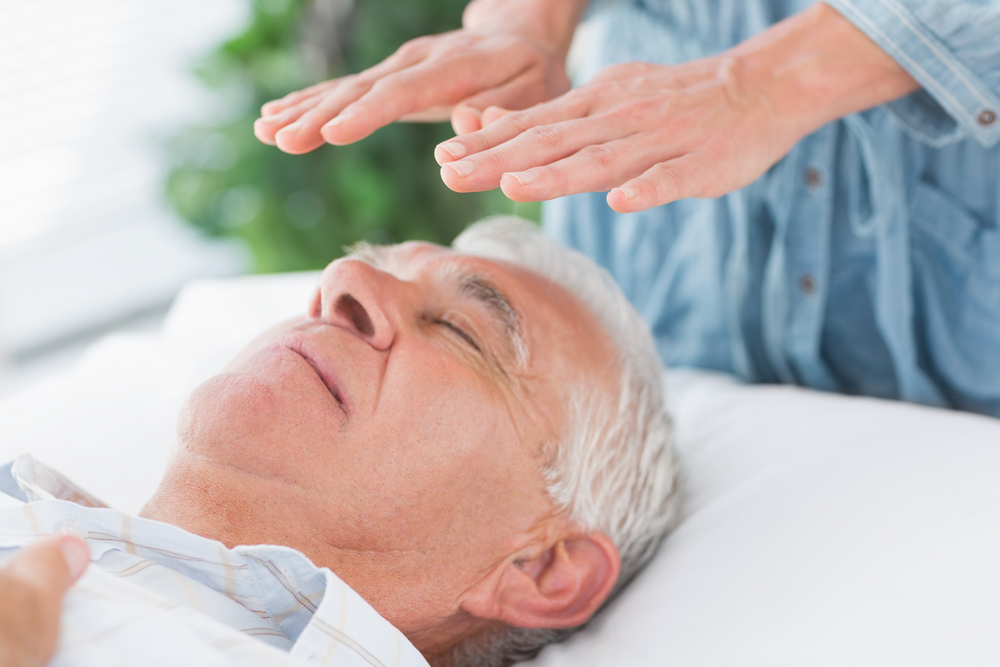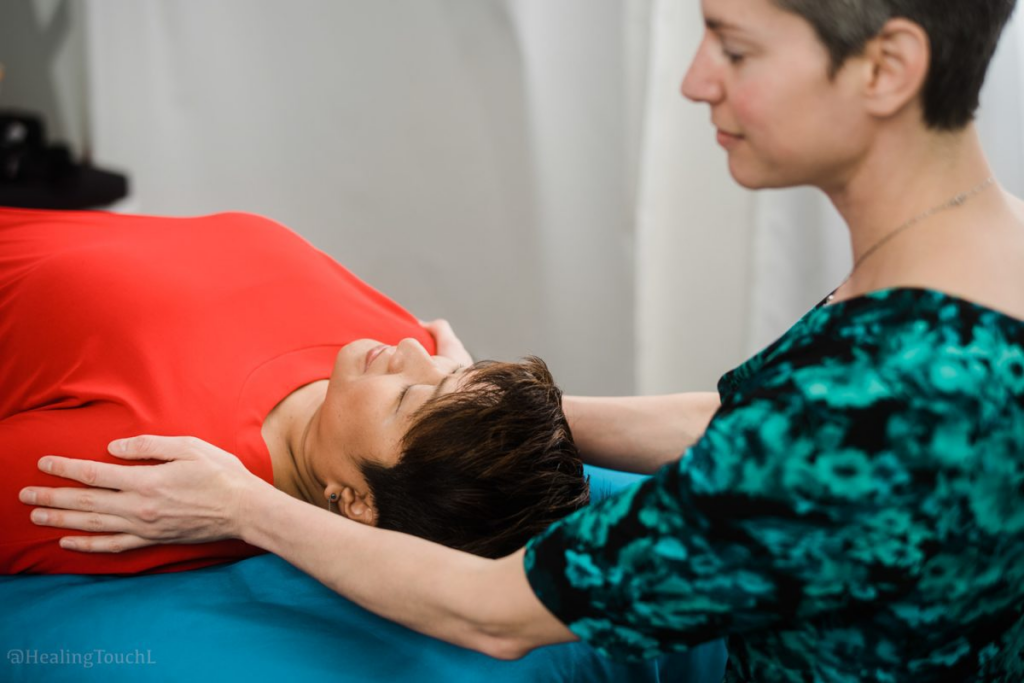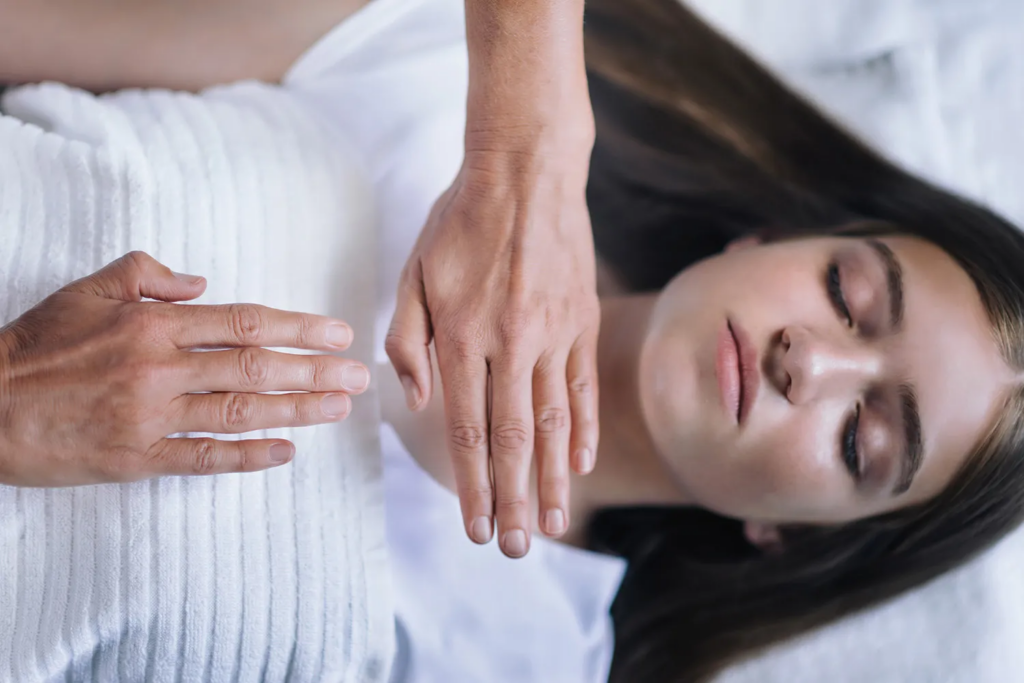
Reiki is a form of Japanese healing technique known for irs calming benefits. However, on some occasions some individuals might feel a bit uncomfortable during the sessions. So come, and learn the reason behind this discomfort that you might feel.
What's the Reiki Healing Process?
The Reiki healing process involves a practitioner gently placing hands on or near the body, channeling energy to balance and support physical, emotional, and spiritual well-being.
Reiki refers to an alternative healing approach, which involves transferring universal life force through the palms of the therapist up to the patient. Its purpose lies in facilitating alignment of the body energy systems leading to physical, spiritual and emotional wellness.
This method entails channeling energies through a reiki healer during sessions to unblock any congestion in a person’s system. This may result in different responses since it allows your body to regain balance once again.
What is the risk of Reiki?
The risk of Reiki is minimal, mainly involving potential emotional release during sessions. However, it’s not a substitute for medical treatment or diagnosis.
Reiki is generally safe with very low risks. It involves very light touching or no touching at all. Some individuals may experience mild side effects like tiredness, headaches, or a release of emotions that last for a short period of time.
The main issue comes up when someone uses this therapy alone as a treatment for serious medical conditions without the support of traditional medicines. It must be stressed that this therapy should be administered only after seeking proper medical advice.
What Are Common Post-Reiki Reactions?
Common post-Reiki reactions include deep relaxation, emotional release, lightness, or fatigue. Some may experience mild detox symptoms, such as headaches or mood changes, which are temporary.
After a Reiki session, some people may have physical problems such as headaches, nausea, fatigue, muscle pains, etc.
This procedure can also make people feel emotional and have mental reactions like mood swings, increased sensitivity, clear dreams, and mental fog or clarity
Why Do People Feel Sick After Reiki?
People may feel sick after Reiki due to emotional release or detoxification, as the body’s energy shifts and begins to process and release stored tension or toxins.
This therapy might stimulate the body’s natural detoxification processes. Toxins are released through reiki therapy. These toxins are eliminated by the bloodstream during circulation throughout the body, which might cause temporary discomfort.
The movement of energy during this therapy results in increased blood flow that could cause dizziness or nausea until one’s body adjusts to this change.
This treatment aligns chakras, thereby triggering temporary physical or even emotional disturbances.
The relaxing impacts of this therapy may bring suppressed emotions to the surface leading to emotional turmoil. Although beneficial in the end, this process can be challenging.
In individuals who have experienced trauma before, this energy therapy might prompt self-healing, causing temporary discomfort as past wounds are addressed.
In some cases, people may experience a “healing crisis” meaning that symptoms temporarily get worse before they improve. It is often understood as an indication that healing has started.
This procedure can speed up the natural healing processes of the body, which might cause momentary discomfort as the body works to resolve long-term problems more quickly than it normally would.
Some people can be more sensitized to energy than others. These types of individuals may have stronger responses to this therapy and might get sick or overwhelmed with emotions.
How To Deal With Post-Reiki Reactions?
To handle post-Reiki reactions, stay hydrated, rest, and allow emotional processing. Light exercise and healthy eating can also help ease temporary discomfort or symptoms.

To ease post-Reiki discomfort: stay hydrated, rest and give your system time to assimilate energy. Opt for gentle workouts like walking or stretching. Try to ground yourself with time in nature. Consume Healthy and easy-to-digest meals.
Talk about your reactions with your Reiki healer, who may provide insights, adjust upcoming sessions, or guide you on how to manage the symptoms. Consider reducing session times or spacing out treatments if you are highly sensitive to this energy based healing in order to enable your body to get accustomed through gradual exposure.
Understand that short-term discomfort can be a part of the healing process. Be open and patient with this alternative healing method letting it take its time as the body could undergo an integration process.
Although most post-reaction risks are temporary and harmless, consult a healthcare professional whenever they persist or worsen, especially if one is suffering from pre-existing conditions.
What Are The Long-Term Benefits of Reiki?
Long-term benefits of Reiki include reduced stress, enhanced emotional balance, improved mental clarity, better sleep, and support for overall well-being and healing over time.
Despite potential short-term discomfort, many people experience significant long-term benefits, including: reduced stress and anxiety, improved sleep quality, enhanced overall well-being, greater emotional balance, increased energy levels and better management of chronic conditions.
Does reiki really heal?

Reiki is believed to support healing by promoting relaxation and balancing energy, though scientific evidence is limited, and its effects vary among individuals.
Reiki healing is based on believing in unseen forces of life flowing through us. Many people feel relaxed or energized after a therapy session but scientific proof regarding its effectiveness is weak and mixed.
Some studies suggest possible relaxation and stress reduction but more rigorous research is required for the confirmation of such claims. Whether it’s “real” or not depends on personal belief and experience. It is often considered a complementary modality rather than a primary healing method.
What happens when you practice Reiki every day?
Practicing Reiki daily can enhance relaxation, improve emotional balance, and support overall well-being. However, individual experiences vary, and consistent practice may deepen personal insights and healing.
Practicing Reiki every day may possibly result in a tranquil, restful, and balanced feeling. It is usually believed that regularly engaging in this exercise can reduce anxiety and uplift your mood or even emotional stability. Improved self-awareness and spiritual growth are said to be experienced by some reiki healers.
Nonetheless, individual experiences vary greatly and largely depend on one’s own openness and trust in the technique itself. One must bear in mind at all times that this therapy should always go hand in hand with other health practices and treatments.
Conclusion
It is actually quite common for people to feel a bit sick after receiving this therapy as the body heals and rebalances itself. Learning about the side effects can assist individuals in managing their symptoms after a Reiki session. Remember that the experience with this therapy varies from person to person.
